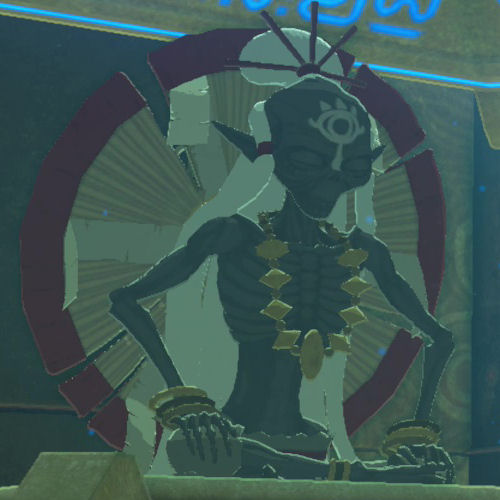Suma Sahma: Difference between revisions
Jump to navigation
Jump to search
Want an adless experience? Log in or Create an account.
(Created page with "{{SheikahMonk|File:Suma-Sahma-Model.jpg|Suma Sahma Model|Male|Suma Sahma's Blessing}} Like the other Sheikah Monks, Suma Sahma has three rings on each of his hands. Suma...") |
No edit summary |
||
| Line 1: | Line 1: | ||
{{SheikahMonk|[[File:Suma-Sahma-Model.jpg]]|Suma Sahma Model|Male|Suma Sahma's Blessing}} | {{SheikahMonk|[[File:Suma-Sahma-Model.jpg]]|Suma Sahma Model|Male|Suma Sahma's Blessing}} | ||
Like the other Sheikah Monks, Suma Sahma has three rings on each of his hands. Suma Sahma can be seen sitting cross-legged with a hand resting on each of his knees. Suma Sahma has the identical attire and pose as that of [[Tawa Jinn]]. Additionally, while Suma Sahma has a different attire, his pose is identical to that of [[Korgu Chideh]] and [[Qukah Nata]]. | Like the other Sheikah Monks, Suma Sahma has three rings on each of his hands. Suma Sahma can be seen sitting cross-legged with a hand resting on each of his knees. Suma Sahma has the identical attire and pose as that of [[Tawa Jinn]]. Additionally, while Suma Sahma has a different attire, his pose is identical to that of [[Korgu Chideh]], [[Korsh O'hu]], and [[Qukah Nata]]. | ||
<gallery> | <gallery> | ||
Revision as of 19:06, February 26, 2020
Suma Sahma
Race | ||
Gender | Male | |
Trial | Suma Sahma's Blessing | |
Games | ||
Location | ||
Suma Sahma is a character found in Breath of the Wild. He is a Sheikah Monk who serves the Goddess Hylia by guarding the Suma Sahma Shrine.
Breath of the Wild
After Link successfully completes the Suma Sahma Shrine, Suma Sahma gives him a Spirit Orb.
Like the other Sheikah Monks, Suma Sahma has three rings on each of his hands. Suma Sahma can be seen sitting cross-legged with a hand resting on each of his knees. Suma Sahma has the identical attire and pose as that of Tawa Jinn. Additionally, while Suma Sahma has a different attire, his pose is identical to that of Korgu Chideh, Korsh O'hu, and Qukah Nata.






